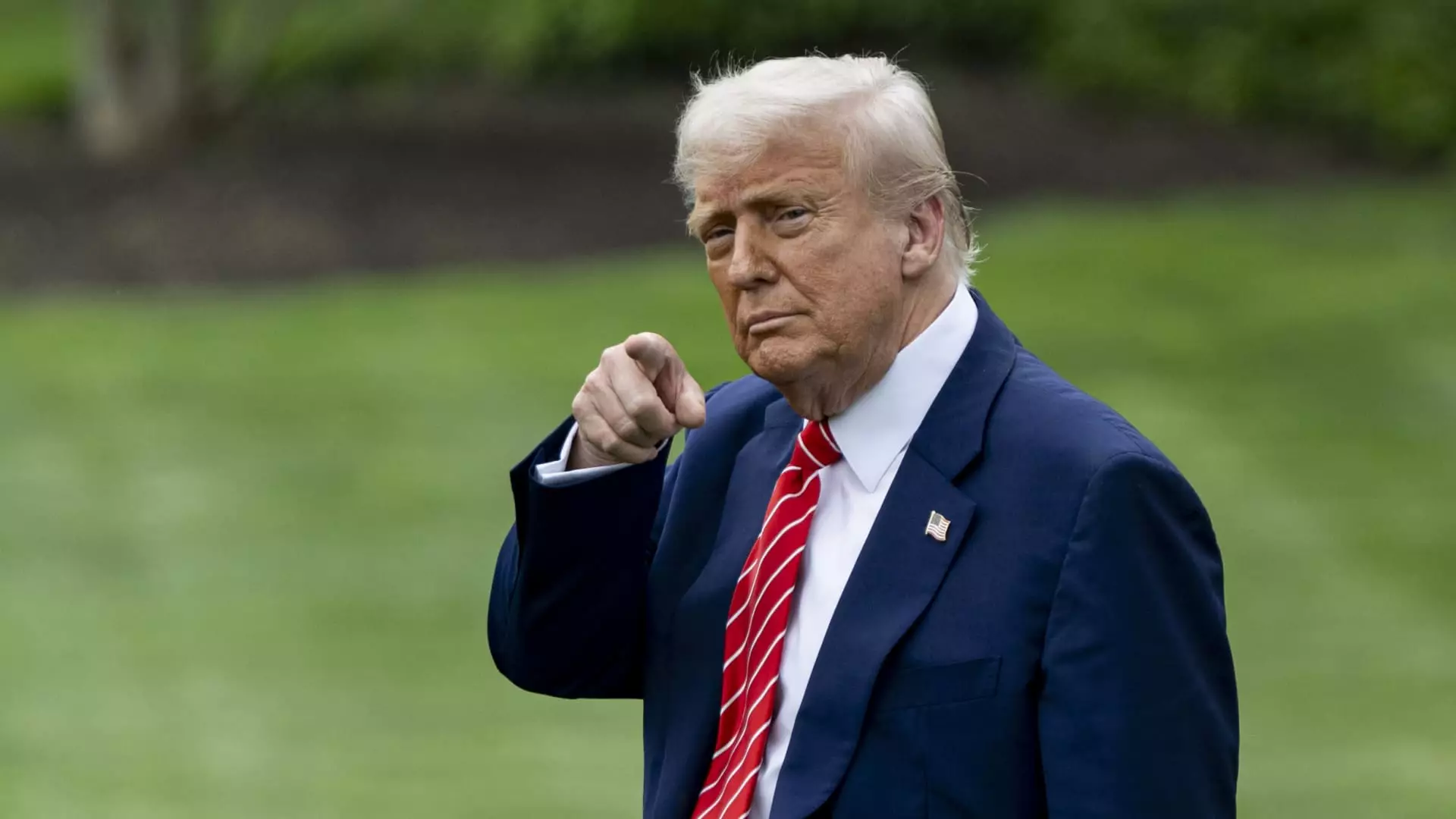In an unprecedented twist on U.S. fiscal policy, the Senate is currently deliberating over a multi-trillion-dollar spending bill that features a controversial provision known as Section 899. This little-discussed aspect of the House-approved legislation could unleash a series of financial consequences that would not only rattle Wall Street but potentially alienate foreign investors, impacting the U.S. economy’s stability. By introducing a tax of up to 20% on foreign investments, the bill threatens to escalate economic tensions, undermine global investment connections, and serve as a glaring example of protectionist sentiment clouding sound economic judgment.
A Closer Look at the Provision
The negative sentiment surrounding Section 899 primarily stems from its intention to tax foreign entities that operate within the U.S. if their home countries impose, what the bill deems “unfair foreign taxes,” on American companies. Such wording has led some analysts to label it a “revenge tax.” What makes this provision so alarming is the ambiguous nature of what qualifies as “unfair”—a term that could be misused to suit political agendas rather than genuine economic interests.
The looming possibility of significant tax increases—from a baseline of 5% to 20% depending on the actions of foreign governments—raises serious concerns. Given that the measure covers a broad spectrum of taxes, including digital services taxes and diverted profits taxes, it effectively opens a Pandora’s box of retaliatory taxation. The result? Companies operating within the U.S. may find themselves ensnared in complicated tax webs that make investment less predictable and, ultimately, less appealing.
The Impact on American Economy
At a time when the U.S. economy is already grappling with post-pandemic recovery, such punitive measures could prove to be detrimental. The Investment Company Institute, as well as other voices in the asset management sector, have issued stark warnings. They highlight that such taxes are likely to limit foreign investment inflow, which has historically served as a driver for innovation, job creation, and economic expansion.
Financial giants—hedge funds, private equity firms, and other asset managers—are already beginning to reassess their strategies. Should this provision go into effect as currently proposed, these investors may be compelled to reconsider their commitments to U.S. markets, thereby shifting their capital elsewhere. This could lead to a vicious cycle where decreased foreign investment results in slower growth, thereby impacting American workers and consumers.
Political Implications and Ideological Conflicts
The debate surrounding Section 899 is not just about taxes; it reflects deeper ideological divides. Rooted in center-wing liberalism, it is essential for policymakers to recognize the balancing act that must be performed. The need to protect American interests should never translate into isolationism. While the rationale for Section 899 is couched in the desire for fair reciprocity in tax treatment, the implementation appears more geared toward retribution than constructive policy-making.
Republican members of the House Ways and Means Committee are fervently pushing for this measure. They argue that the potential revenue—estimated at an eye-popping $116 billion over a decade—could be utilized to fund other priorities within President Trump’s spending bill. Yet, this opportunism cloaked as patriotism poses the risk of alienating valuable allies and partners who could withdraw their investments in response.
Repercussions for Global Relations
The political ramifications of Section 899 extend beyond mere economics—it risks creating fractured international relationships. U.S. businesses thrive in interconnected global markets. By imposing such taxes, the message sent to foreign nations rivalries the harmful narratives of the past. Rather than fostering dialogue, collaboration, and reform among countries around taxation, the legislation paints a picture of hostility.
Moreover, altering tax structures while disregarding existing international agreements could invite retaliation from foreign governments. The goal of encouraging tax fairness should come with a nuanced understanding of the interconnectedness of global economies. After all, what the U.S. implements in terms of tax policy could have negative ripple effects that extend well beyond our shores.
The Need for Thoughtful Policy-making
With Section 899, it is crucial that we take heed of the lessons from past economic missteps. Policymakers must prioritize smart, constructive engagement over reactionary measures that jeopardize long-term growth. Instead of introducing punitive taxes, a more measured approach that encourages international collaboration and adherence to mutual agreements on taxation should be pursued.
The underlying principle of taxation should focus on fairness and economic health rather than revenge and retaliation. As the Senate continues to grapple with this contentious provision, it is imperative to put a spotlight on the potential ramifications and embrace forward-thinking policies that benefit not only the U.S. economy but also the international community.


Leave a Reply